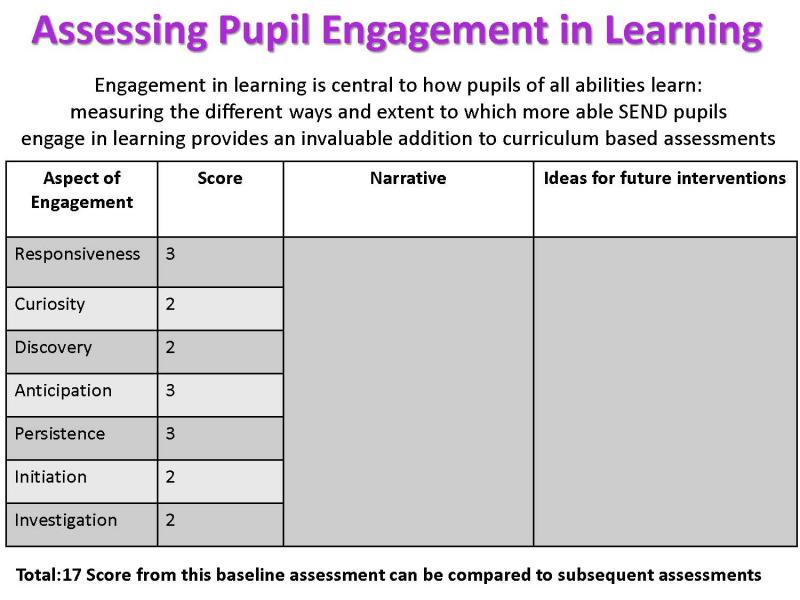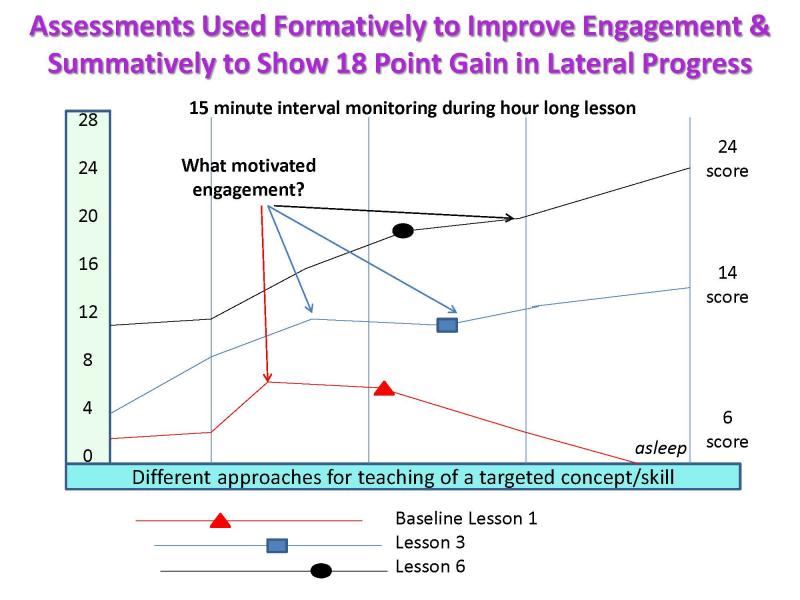Keynote speakers Lesley Cox HMI and Richard Aird OBE return to answer some of the most popular questions from our recent conference on 'measuring what matters' with SEND.

When P levels are removed, how will we be able to assess where pupils who, despite being in Year 1, are working below the Year 1 curriculum?
'You will be able to assess these pupils with the pre-key stage standards, and/or Engagement for Learning (EfL).'
How does one measure progress in engagement quantifiably, or will this not be a requirement?
'Engagement is only a critical lens with which to assess whether or not pupils are making progress. It was not designed as a curriculum-based assessment, in order to prevent schools 'teaching to the test' as with P levels.
No data will need to be submitted concerning the statutory use of EfL, but schools will still need to gather EfL data if they are to determine how well pupils are progressing towards their personalised targets. The engagement scale will provide a means to assessing the progression of scores over time.'
What are the next steps after the Rochford Review? If we go out on our own and write our own pre-key stage levels/measures, will we find we have wasted our time later on?
'After Rochford, it is really up to schools to propose anything or put forward concerns via the consultation. However, the government is becoming increasingly favourable of schools developing their own curricula and assessment.
 With an expressed interest in all schools becoming academies, the national curriculum will largely become irrelevant. The onus will then be on schools to devise their own summative and formative assessments.
With an expressed interest in all schools becoming academies, the national curriculum will largely become irrelevant. The onus will then be on schools to devise their own summative and formative assessments.
It is important that SLTs and governors agree on the details of their assessment policy, which should clearly state exactly what forms of assessment are being used and what purpose the resulting data are put to.
Should the government introduce any new statutory assessment, schools should continue to do their own thing and simply extract the relevant data to suit the government’s agenda. This will prevent the government from dictating what is important for a school's pupils.'
How do you report progress for children who are progressing very slowly or making very little 'measurable' progress?
'Lateral progress can be monitored and reported on objectively by means of the engagement scale. Using this regularly will allow you to assess pupil engagement on a specific improvement target, and refine teaching in response to any EfL improvements.
This must be led by teacher enquiry, so that  any peaks or troughs in pupil engagement may be analysed and acted upon.
any peaks or troughs in pupil engagement may be analysed and acted upon.
Improving engagement for learning will facilitate improvements in learning. The resulting numerical scores will provide the data needed to quantify lateral progress.'
For more information on the Rochford Review and what it means for schools, read Richard's three-part series:

What is the Ofsted criteria for classifying a child as a 'low attainer'?
'Ofsted does not determine this. Inspectors will want to check on the progress of all pupils with SEND, looking at low, middle and high prior attainers. This is based on their prior attainment at the end of previous key stages.
The new dashboards and RoL assessment guidance includes information about the attainment and progress of these different groups.'
It was mentioned that if you can demonstrate good progress, that is enough for Ofsted. But without national benchmarks, what is 'good'?
'That is for school leaders to determine, using appropriate means to moderate their assessment of progress. If national benchmarks are available, they should be used. In settings where national benchmarks are lacking or inappropriate, then inspectors would look to see that leaders have benchmarked progress using other means, which could include:
Progression Guidance is commonly used and accepted by Ofsted. However, it is out of date. Is there a new method of target setting currently being explored?
'Local and national groups/partnerships are putting a lot of work into this. Ofsted does not dictate what should be used. It is the responsibility of school leaders to determine what is appropriate for their pupils.'